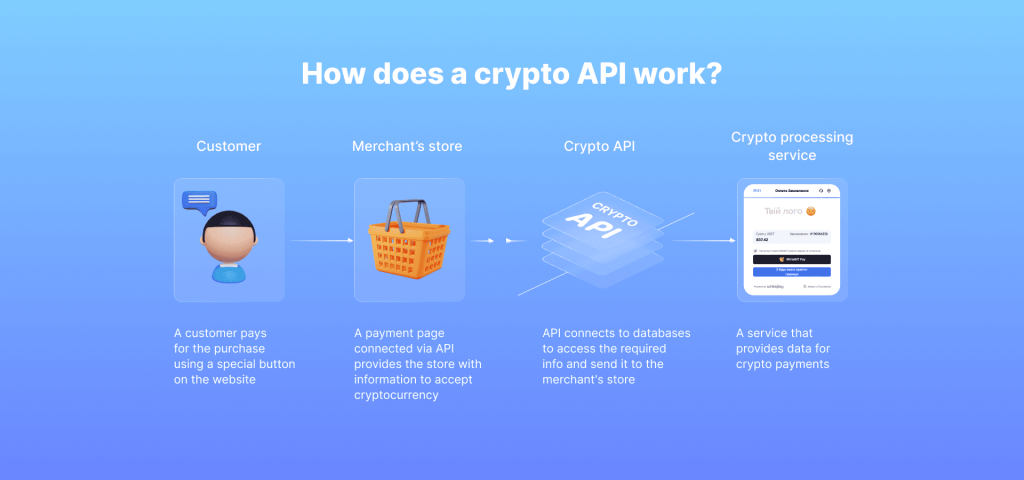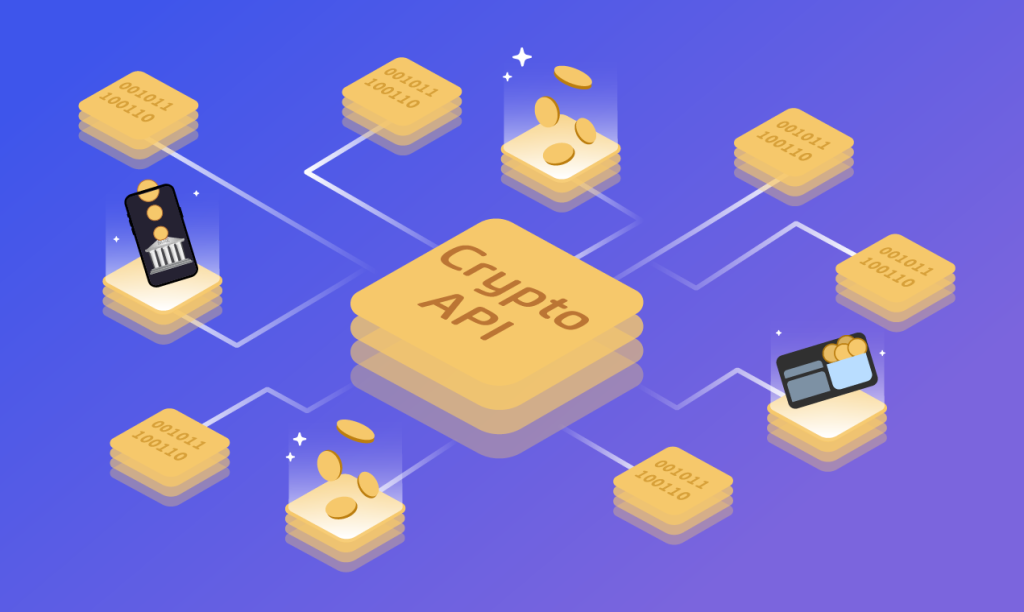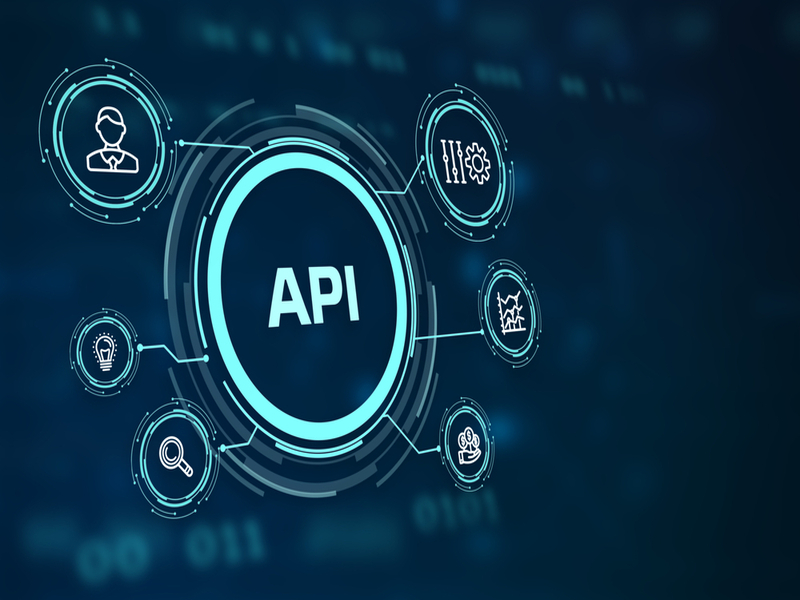AUTHOR : SAYYED NUZAT
DATE : MAY 2, 2024
Cryptocurrency is revolutionizing the way transactions are conducted globally, and India is no exception to this trend. With the increasing popularity of digital currencies, the demand for secure and efficient payment solutions has surged. This has led to the rise of crypto payment APIs, offering businesses a seamless way to accept cryptocurrency payments.
Introduction to Crypto Payment API
What is a payment API?
A payment API, or application programming interface, is a set of protocols[1], tools, and definitions that allows different software applications to communicate and interact with each other to facilitate payment transactions.
Introduction to cryptocurrency
Cryptocurrency is a digital or virtual currency that uses cryptography for security and operates independently of a central bank. Bitcoin[2], Ethereum, and Ripple are some popular examples of cryptocurrencies.
Why use a crypto payment API in India?
As the adoption of cryptocurrencies grows, businesses in India are increasingly looking for ways to accept digital currency payments. Crypto payment APIs[3] provide a convenient and secure solution for integrating cryptocurrency payments into existing platforms, offering customers more payment options and expanding market reach.

Benefits of Crypto Payment APIs
Security
Crypto payment APIs utilize blockchain technology, which offers enhanced security features such as encryption and decentralized verification, making transactions highly secure and resistant to fraud.
Lower transaction fees
Compared to traditional payment methods such as credit cards or bank transfers, crypto transactions typically incur lower fees, saving businesses money on transaction costs.
Global accessibility
Crypto payment APIs enable businesses to accept payments from customers anywhere in the world without the need for currency conversion or international transaction fees.
Transparency
Blockchain technology provides transparent and immutable records of transactions, allowing businesses and customers to track payment history and verify transactions in real-time.
How Crypto Payment APIs Work
Integration process
Integrating a crypto payment API into a website or app involves installing the necessary software libraries and configuring the API settings to enable cryptocurrency payments.
Transaction flow
When a customer initiates a payment using a crypto payment API, the API generates a unique payment address and QR code, which the customer can use to send the cryptocurrency from their digital wallet[4]. Once the payment is confirmed on the blockchain network, the API notifies the merchant, and the transaction is completed.
Supported cryptocurrencies
Crypto payment APIs support a wide range of cryptocurrencies, including Bitcoin, Ethereum, Litecoin[5], and others, allowing businesses to offer flexibility in payment options to their customers.

Major Players in Crypto Payment APIs in India
Several companies offer crypto payment API solutions in India, each with its own unique features and capabilities. Some of the leading providers include CoinGate, BitPay, and Coinbase Commerce.
Regulatory Environment
The regulatory environment surrounding cryptocurrencies in India is evolving, with the Reserve Bank of India (RBI) issuing guidelines and directives to regulate the use and trading of digital currencies. Businesses considering integrating crypto payment APIs must be aware of the legal considerations and compliance requirements.
Challenges and Concerns
Volatility
The volatile nature of cryptocurrencies poses a risk for businesses accepting digital currency payments, as the value of cryptocurrencies can fluctuate significantly in a short period.
Regulatory uncertainty
The regulatory landscape for cryptocurrencies in India is still uncertain, with ongoing debates and discussions regarding the legality and regulation of digital currencies.
Adoption hurdles
Despite the benefits of crypto payment APIs, widespread adoption in India faces challenges such as lack of awareness, technical complexities, and concerns about security and stability.
Use Cases of Crypto Payment APIs in India
E-commerce
Many e-commerce platforms in India are exploring crypto payment APIs as a way to offer alternative payment options to customers and attract a broader audience.
Remittances
Crypto payment APIs can streamline cross-border remittance services, enabling faster and cheaper money transfers compared to traditional banking channels.
Cross-border transactions
Businesses engaged in international trade can leverage crypto payment APIs to facilitate cross-border transactions, reducing the time and costs associated with currency exchange and wire transfers.
Future Outlook
The adoption of crypto payment APIs in India is expected to grow in the coming years, driven by factors such as increasing acceptance of cryptocurrencies, technological advancements, and evolving regulatory frameworks. As businesses and consumers become more familiar with digital currencies, the demand for crypto payment solutions is likely to rise.
Conclusion
Crypto payment APIs offer businesses in India a convenient and secure way to accept cryptocurrency payments, unlocking new opportunities for growth and innovation. Despite regulatory challenges and adoption hurdles, the future outlook for crypto payment APIs in India is promising, with the potential to revolutionize the way transactions are conducted in the digital economy.
FAQs
- Are crypto payment APIs legal in India?
- While the regulatory landscape is still evolving, there are no explicit laws prohibiting the use of crypto payment APIs in India. However, businesses must comply with relevant regulations and guidelines issued by the RBI.
- What cryptocurrencies are supported by crypto payment APIs?
- Crypto payment APIs typically support popular cryptocurrencies such as Bitcoin, Ethereum, Litecoin, and others.
- How secure are crypto payment APIs?
- Crypto payment APIs utilize blockchain technology, offering enhanced security features such as encryption and decentralized verification, making transactions highly secure and resistant to fraud.
- Can businesses accept both cryptocurrency and traditional payments using crypto payment APIs?
- Yes, businesses can offer customers the option to pay using both cryptocurrencies and traditional payment methods such as credit cards or bank transfers.
- What are the fees associated with using crypto payment APIs?
- Fees associated with using crypto payment APIs vary depending on the provider and the volume of transactions. Generally, crypto transactions incur lower fees compared to traditional payment methods.





